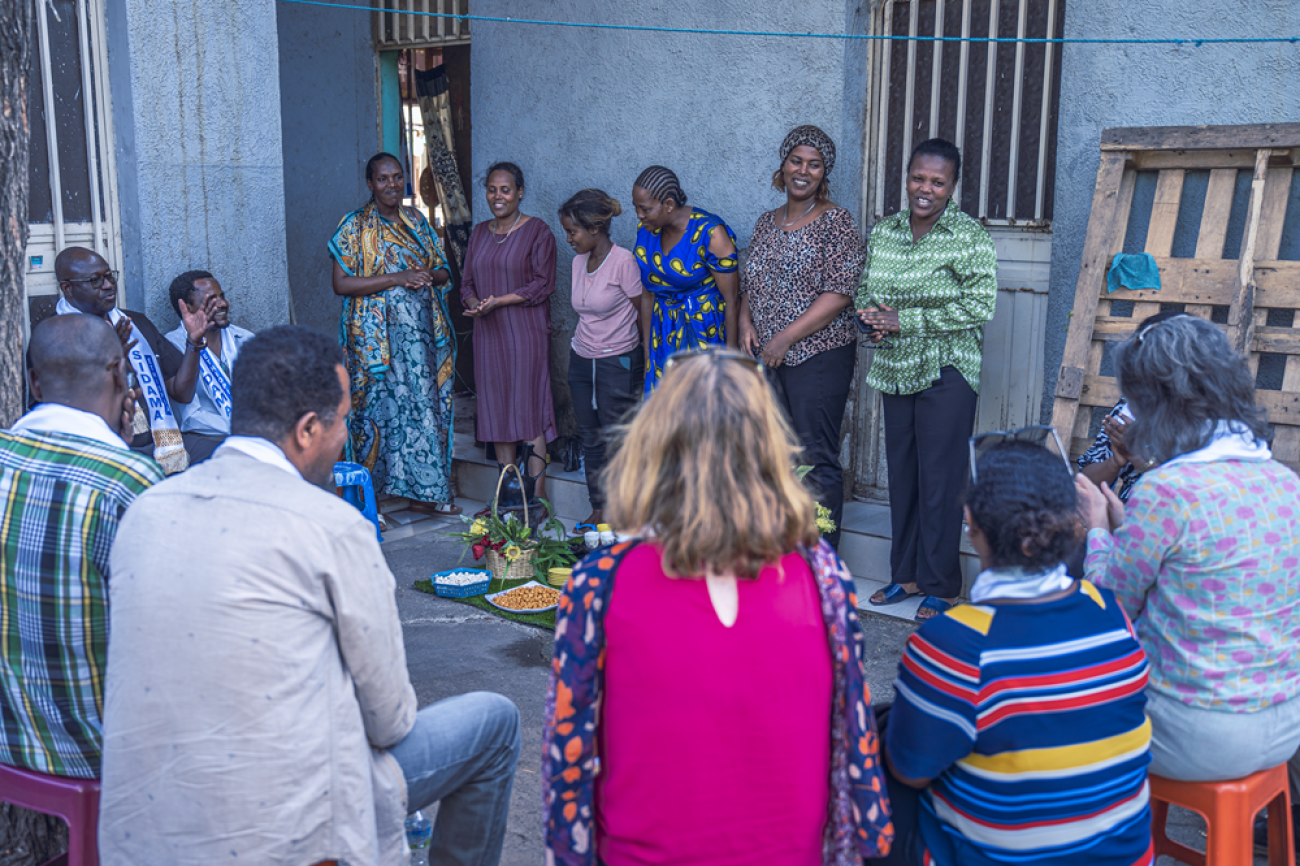ILO’s ProAgro Ethiopia Project transforming lives

Urban agriculture is increasingly becoming a primary source of livelihood and temporary employment for youth migrating from rural to urban centers in Ethiopia.
In the absence of other job opportunities, they engage in small-scale dairy farming, the production of vegetables, fruits, and spices, as well as the retail of garden inputs and materials to earn income.
However, the growing number of livestock, dairy farms, and poultry businesses is contributing to pollution and negatively impacting air quality for city residents. To address this, as part of the ProAgro Ethiopia project's goal of decent job creation, these businesses are being relocated outside the city to designated areas with clusters of permanent structures. These new locations will offer additional training in quality, hygiene, and waste management. These small-scale “eco-industrial hubs” will play an important role in advancing the UN Climate Action’s Greener Cities initiative and supporting the Ethiopian Government’s Climate Resilient Green Economy Agenda.
This pilot component of the ILO ProAgro Ethiopia Project has been well-received by the first cohort of 32 small businesses engaged in the agro-processing sector. Additionally, a partnership with local TVET colleges has been established to provide green skills training on waste reuse, as well as on the quality production and processing of milk and eggs.
Formalizing Women’s Agri-businesses in Spices: Expanding Market Access and Job Creation Potential
The training, business development coaching, and provision of production machinery are key steps in formalizing small and micro-enterprises in the agribusiness sector, which is predominantly led by women. Despite their creativity and dedication, women often face challenges in accessing land, credit, and machinery to expand their businesses.
“We started as individuals and were fortunate to join the ILO ProAgro Ethiopia project for business coaching and access to finance. We then formed a cooperative of eight women. Initially, we produced spices in poor working conditions, which affected the quality of our products and packaging. Thanks to the ILO ProAgro Ethiopia project, we now have two grinding machines that will address quality and hygiene issues and increase our production,” says Kidist Demeke, Team Leader of Birtu Baltna, a women’s agribusiness network specializing in spice processing.
The success of this eight-member women’s cooperative has been highlighted in regular business-to-business events, which have become a key part of their exposure and market expansion strategies. The women are hopeful about expanding their market access to more distributors and Ethiopian diaspora consumers abroad.
Watch https://youtu.be/LaPujSpxiso how we are empowering small and micro-enterprises to thrive and create sustainable livelihoods in the agro-processing sector in Ethiopia.


